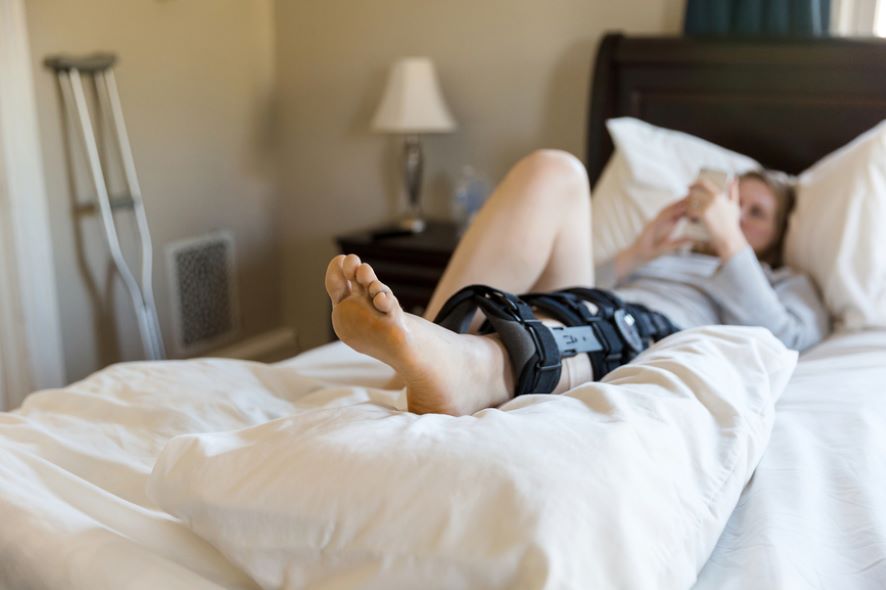The Annoying Double Whammy: Why Your Ears Hurt When You Swallow with a Sore Throat
A sore throat can be a real pain, but when it’s accompanied by ear pain, it can be downright frustrating. This seemingly unrelated discomfort actually has a logical explanation. This comprehensive guide explores the reasons why your ears might hurt when you swallow with a sore throat, delves into potential solutions, and offers preventive tips for optimal ear and throat health.
Understanding the Connection: The Eustachian Tube and Its Role
The key to understanding the link between ear pain and a sore throat lies in a hidden passage called the Eustachian tube. This tube connects the middle ear cavity (located behind the eardrum) to the back of the nasal cavity and upper part of the throat.
Normally, the Eustachian tube remains closed and only opens briefly during activities like swallowing, yawning, or chewing. This opening helps equalize air pressure in the middle ear, which is crucial for proper hearing and eardrum function.
The Culprits Behind Ear Pain with Swallowing: When a Sore Throat Disrupts the Balance
Several reasons can explain ear pain when you swallow with a sore throat:
- Inflammation and Congestion: A sore throat is often caused by a viral or bacterial infection, which can lead to inflammation and swelling of the tissues in the throat and surrounding areas. This inflammation can also extend to the Eustachian tube, causing it to become swollen and congested. When you swallow, the movement can irritate the inflamed tissues in the Eustachian tube, leading to ear pain.
- Blocked Eustachian Tube: If the Eustachian tube becomes blocked due to swelling or mucus buildup caused by the sore throat infection, the pressure in the middle ear can become imbalanced. This pressure difference can cause the eardrum to bulge inwards, leading to ear pain and a feeling of fullness in the ear.
- Sinus Issues: Sometimes, a sore throat can be accompanied by a sinus infection. Since the sinuses are located near the Eustachian tube, inflammation and congestion in the sinuses can also affect the Eustachian tube function, contributing to ear pain when swallowing.
Additional Factors That Can Worsen Ear Pain:
- Allergies: Seasonal allergies can cause inflammation and congestion in the nasal passages and Eustachian tube, leading to ear pain, especially when combined with a sore throat.
- Dry Air: Dry air can irritate the throat and nasal passages, worsening congestion and potentially increasing ear pain, particularly during sleep.
Finding Relief: Strategies to Soothe Your Sore Throat and Ear Pain
While seeking professional medical advice is crucial for addressing the underlying cause of your sore throat and ear pain, here are some strategies to manage discomfort at home:
- Over-the-Counter Pain relievers: Pain relievers like ibuprofen or acetaminophen can help manage both throat pain and earache.
- Warm Salt Water Gargle: Gargling with warm salt water several times a day can help soothe a sore throat and reduce inflammation.
- Moisturify the Air: Using a humidifier can add moisture to the air, which can help loosen mucus and ease congestion in the throat and Eustachian tube, potentially reducing ear pain.
- Soothing Throat Lozenges: Sucking on lozenges can help numb the throat and provide temporary relief from soreness.
- Rest: Getting enough sleep allows your body to focus its energy on fighting the infection that’s causing your sore throat and ear pain.
When to See a Doctor: Seeking Professional Help
If your ear pain is severe, persistent, or accompanied by:
- Fever
- Difficulty hearing
- Drainage from the ear
- Facial swelling
- Severe throat pain
See a doctor or otolaryngologist (ear, nose, and throat specialist) promptly. They can diagnose the underlying cause of your sore throat and ear pain and recommend appropriate treatment, which might include antibiotics for bacterial infections or decongestants to reduce swelling and improve Eustachian tube function.
Preventing the Double Trouble: Strategies for Ear and Throat Health
By incorporating these practices into your daily routine, you can significantly reduce your risk of experiencing ear pain with a sore throat and promote overall ear and throat health:
- Frequent Handwashing: Frequent handwashing with soap and water is one of the best ways to prevent the spread of germs that can cause both sore throats and ear infections.
- Maintain a Healthy Diet: Eating a balanced diet rich in fruits, vegetables, and whole grains provides your body with the essential nutrients it needs to fight off infections.
- Get Enough Sleep: Adequate sleep strengthens your immune system, making you less susceptible to infections.




